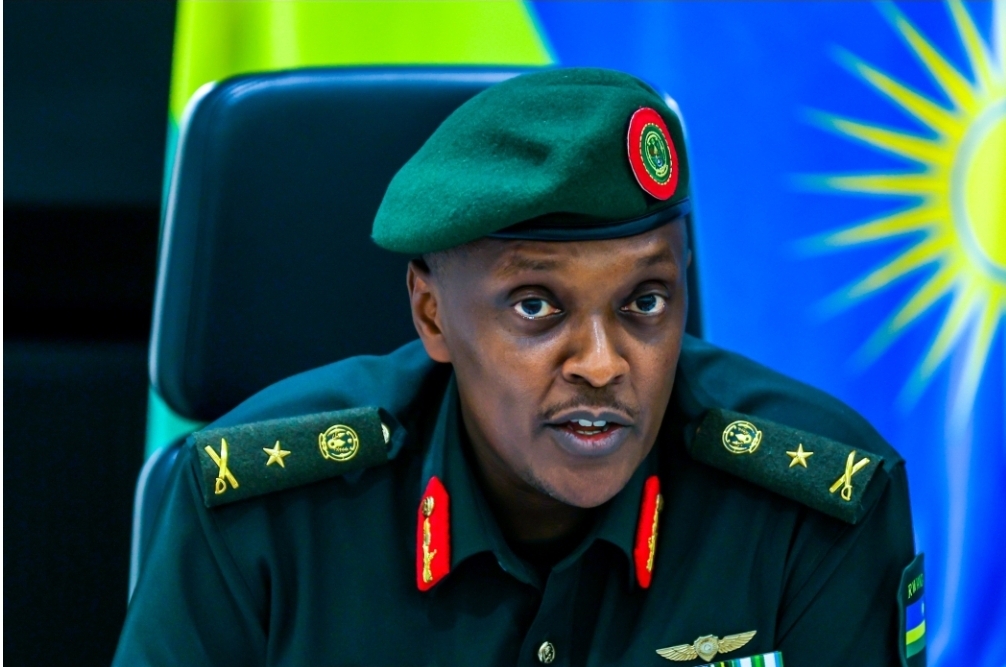Heroes are not only in the military because there are people who have had exemplary acts in times of danger and were able to pursue their goals to the end, says RDF Spokesperson Brig Gen Ronald Rwivanga.
Rwivanga made this statement on Wednesday, January 22, during ‘The Summit Show’ aired on the national broadcasting television. The discussion was held ahead of the 31st celebration of National Heroes Day on February 1, aiming to inspire a generation of purpose and resilience.
On this day, Rwandans reflect on and eulogise men and women of valour for their outstanding and selfless achievements to the country, which will be observed when there is still no one named to the ‘Ingenzi’ category of heroes.
According to the Chancellery for Heroes, National Orders and Decorations of Honour (CHENO), national heroes are classified into three categories, namely Imanzi (first), Imena (second), and Ingenzi (third).
“Heroes are not only in the military. Very few [In Rwanda] are military personnel and the reason is that in its definition, you have to have indicators of heroism including supreme acts,” he noted.
Rwivanga explained that an individual can develop supreme acts and that’s ‘Imanzi’ in Kinyarwanda where you develop supreme acts of bravery in time of need.
“A good example is Late Maj Gen Fred Rwigema and the unknown soldier representing all those who sacrificed their lives during the liberation struggle but also those who could have died in pursuit of that objective,” he noted.
The RDF Spokesperson goes on to emphasize that one doesn’t need to be among military service men to be a hero because “there are people who have had exemplary acts in times of danger and were able to pursue their goals to the end”.
He said: “I’ll give an example of Nyange students. These girls were not in the military but when they’re told to choose between their lives and identifying who’s the Tutsi and Hutu, the girls said no, we’re all Rwandans. We’re not going to tell you who is who here. There, some of them lost their lives and others are still alive and they are considered to be heroes.”
“Therefore, it doesn’t have to be in the military realm to be a hero. You can also be a hero in another realm,” he added.
Rwivanga clarified that anyone can qualify for any category of heroes, including the “Ingenzi” category. However, he noted that no one has been named to this category so far, emphasizing that everyone remains a potential candidate.
“These are people who perform acts of great importance. People who can innovate something new to save humanity. For instance, during the COVID-19, if one of us came up with a vaccine or a cure of the disease just like the Zip line concept, we’d have considered that person a candidate for Ingenzi or a person of great importance to the society,” he explained.
“Heroes can be made and heroes are yet to be made,” he emphasized.
Other heroes in their respective categories
Umwami Mutara III Rudahigwa Charles Léon-Pierre – Imena
King Mutara III Rudahigwa, son of King Yuhi IV Musinga and Nyiramavugo Kankazi Redegonde, championed the welfare of Rwandans during his reign. He advocated for independence, democracy, and justice, using the King’s Court to fight against injustice.
Agathe Uwiringiyimana – Imena
Agathe Uwiringiyimana was Rwanda’s first female Prime Minister, serving from July 17, 1993, until her assassination on April 7, 1994. She championed women’s rights and fought against divisionism before being killed by the genocidal regime’s presidential guard.
Michel Rwagasana – Imena
Born in 1927 in Gitisi, Ruhango District, Michel Rwagasana was a graduate of Groupe Scolaire Astrida with a Diploma in Administration. Known for his integrity, he served as King Mutara III Rudahigwa’s Personal Secretary from 1954.
He is remembered for advocating unity, independence, and opposing ethnic division. Rwagasana was killed during Gregoire Kayibanda’s regime for rejecting ethnic segregation.
Félicité Niyitegeka – Imena
Born in 1934, she was killed on April 21, 1994, during the Genocide against the Tutsi. While working at Centre Saint Pierre in Gisenyi (now Rubavu District), she refused to abandon over 30 Tutsi refugees despite warnings from her brother, a military officer. When the Interahamwe offered to spare her life but kill the refugees, she chose to die with them.

